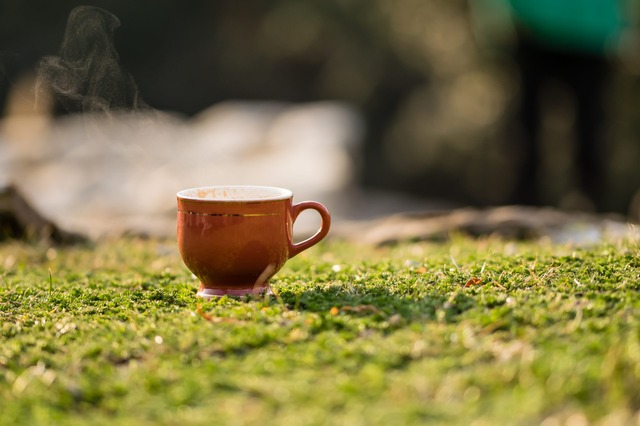
How a cuppa can help make your plants flourish
Did you know your morning brew could be beneficial for more than just quenching your thirst?
Bank Holiday Monday marked National Tea Day – and the gardening experts at Crown Pavilions have found some added benefits to the British favourite.
Approximately 100 million cups of tea are consumed every single day – with over 60 billion tea bags being used annually.
So why not reduce waste and benefit your plant life at the same time…
With experts discovering that tea can help give plants a new lease of life, even with fluctuating spring temperatures, rather than discarding your used tea bag, try using it to help your houseplants to flourish.

What are the benefits of tea on plant life?
Herbal teas in particular are rich in nutrients like nitrogen, which improves soil fertility.
They can also help to hydrate plants, boost growth rates and enhance root development – this is particularly important for houseplants as they face inconsistent temperatures due to central heating.
Tea at room temperature is great for plants in the spring months, providing that much needed hydration and nutrients without shocking them with cold water.
Treat your plants like you would your pets, with extra care, and they’re more likely to flourish for you.
Soil amendment
Used tea bags can be mixed into potting soil to help improve its nutrient content and structure.
Natural fertiliser
Tea that has been brewed is a natural fertiliser, which will provide essential nutrients to your houseplants and other plant life.
Pest repellent
Weak tea can help to keep aphids and spider mites away from your plants, whilst helping to nourish your plants at the same time.
Moisture retention
Brewed tea can help retain any moisture in the soil, particularly useful as the weather gets water.
This will benefit your plant health and help them to stay healthy for longer.
Which tea is best for plants?
As already mentioned, herbal teas offer the most benefits for plants as they are free from additives and chemicals that might harm plants.
These are the ones most recommended by gardening experts…
Chamomile tea
Known for its calming properties, chamomile tea can help to reduce inflammation and promote healthy growth in your plant life.
Peppermint tea
This can provide a mild boost to your plant growth.
Ginger tea
Ginger tea can help to improve your soil health and support the healthy growth of your plants.
How often should I give my plants tea?
The experts advise adding herbal tea to your plants once every two to four weeks.
This can be adjusted based on how your plant reacts.
Giving your plants too much tea could affect the soil’s acidity or potentially have other adverse effects – including yellowing foliage or brown leaf tips.
Luke Dejahang, Gardening Expert and CEO of Crown Pavilions, states, “Herbal teas can be valuable additions to your plant care routine, especially during the important start to spring.
“By following our tips and monitoring your plants, not only will you be helping them stay healthy, but it is a great way to boost your own mood and mental well-being through a calming daily ritual.”
READ MORE:




